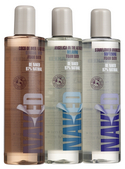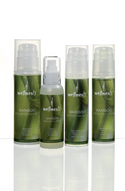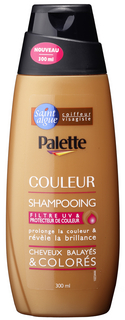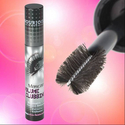Green agenda takes centre stage in beauty sector
4 January 2008The attraction of packaging in the personal care and beauty sectors must be more than purely cosmetic. Joanne Hunter discovers that what goes into the pack’s make-up is as crucial as what the pack contains
Primary and secondary packaging in the cosmetics and toiletries sector has to function on many levels in a challenging supply chain and also stand up to the scrutiny of discerning and increasingly knowledgeable consumers. Aesthetic appeal starts with the packaging’s form and surface decoration. But the innate beauty of a pack lies deep down, in its use of raw materials, production processes and post-consumer usefulness.
Ecover, the Belgian firm best known for its everyday household products made from plant-based formulations, has been in the same hands and privately owned since 1993, with just one previous owner, who founded the business on environmentally sound principles in 1980. Since 2005 the group’s portfolio has also included Wellments plant-based cosmetic toiletries and a range of fragrances made from essential oils.
Peter Malaise is Ecover Group’s concept manager or “soul-keeper”, who joined in 1991, having worked on his own ecological product line since 1975. Malaise said in an exclusive interview with Packaging Today that he looks forward to the day when the fuss that is now made over sustainability and the environment fades: it would be a sign that “good” practices are seen as “normal” practices.
Wellments products are in the broad category of “natural cosmetics”, although ideally Malaise says he would reserve the term “natural” as a descriptor to where it genuinely applies, to a product’s ingredients, production processes or packaging. He readily accepts the more general descriptions, “plant-based” and “from renewable resources” when they are accurately used.
There are three packaging materials the Ecover Group prefers and sticks to - mainly because they are available in quantity: polyethylene, polypropylene and containerboard. Not surprisingly Malaise puts bioplastics at the top of his wish list of packaging materials. But he says such materials are not yet available in quantity, nor of a quality to allow the required two-year shelf life; and decomposition starts too early even for benign formulations of cosmetic creams and toiletries.
Polyethylene (PE) comes after bioplastics in the material hierarchy favoured by environmental campaigning group Greenpeace. Preferably it would be biopolymer-based PE,which Malaise likens to “polymerised gin”. It can be made from plant leftovers, flax and beet for example, which by fermentation transform into alcohol. PE started life as a plant-based material in the 1930s but then the ethanol was derived from coal and petrol – fossil fuels that were cheap at the time.
Malaise says: “It has been forgotten that you can make PE from plant sources. It is reliable as packaging, lightweight and crush-proof. In the not-too-distant future we can see that higher priced petrol will kick off plant-based PE initiatives.”
Meanwhile he concedes that biopolymer-based PE is a “decent choice” and “reusable and recyclable, which bioplastics aren’t”. “There is also a plant-based future for polypropylene (PP),” adds Malaise.
Until this “future” arrives Wellments products will use conventional PE bottles decorated with PE labels so that the packaging can be recycled in a mono-material waste stream.
On packaging design choices and the “natural” cosmetic toiletries market, Malaise says: “We have to fit into the global picture and not go against the mainstream, although we do avoid use of the term ‘natural’ on labels.” In its packaging decisions Wellments follows its own course, with each design discussed between the laboratory and marketer.
The brand’s packaging sets out to convey a gentle image via a softly transparent, smooth appearance and a leaf motif. The on-pack message strives for “openness” and “limits the ear bashing”, says Malaise, who believes the packs’ look creates an “atmosphere”, a “cool and sophisticated” image in contrast to “glamour” styling. Ecover says it chooses suppliers with care because their behaviour can reflect on a brand. Its intervention in the packaging supply chain is limited by business conditions but the company says it does screen potential suppliers in a five-page questionnaire.
A company showing concern for the impact of its behaviour up and down the supply chain helps bring transparency and coherence, says Malaise, and “good production processes become linked to the inherent quality of our products”.
UK company M&H Plastics, of Beccles, has blazed a trail with the claimed first launch of a UK brand in the personal care sector using containers made from post consumer regrind (PCR) PET plastic which is 100% recycled.
Naked Bodycare – a “97% natural” toiletry brand – has introduced PCR packaging for 250ml hand washes and hand lotions and an entire range of foam baths.
M&H Plastics has been working for some time to bring to market sustainable packaging solutions manufactured in recyclable plastics and made from material recovered from the waste stream.
“Naked has quickly picked up on the development work we have undertaken and is the first customer in their product sector to place a bulk order,” adds Kevin Spall, the company’s UK sales manager.
“Listen to what the market wants”, say marketing experts – product end-users as well as direct customers. This, together with “less is more”, another lore of modern design and management, is governing development of new products and processes in luxury-packaged beauty brands. Top brands are beginning to take out unnecessary and obvious excesses and waste from luxury goods, which by definition are excessive to some degree, not least with their high price tags.
Luxury packaging is more than a hallmark of quality for the brand name it bears. These days, packaging also needs to flag up that the brand owner is responsive to calls for responsible attitudes to the environment and ethical purchasing. This means using materials that are less harmful to the environment and processes less “greedy” in their use of energy.
A bio-laminate produced from natural cellulose-based fibres sourced from managed forests and which lays claim to Forest Stewardship Council (FSC) certification is being marketed by API Laminates of Poynton, UK. PortaBio is said to be the first fully biodegradable film-laminated board. Since an exclusive first licensing agreement with Marks & Spencer was lifted in October 2007, a number of carton printers have become PortaBio customers.
"Following the launch of PortaBio at Luxepack (in October 2007) we are seeing huge interest from the cosmetics and toiletries sector, with a number of trial runs already requested at the show,” says Paul Laskey, business manager Europe of API Laminates. “PortaBio not only enables brand owners to maintain the high-quality, luxury image and value of their products but also to reinforce their environmental standing to consumers who are placing increasing importance on such matters."
Packaging can bear an FSC logo where the base board material and printer/converter are also certified under the FSC management system to show consumers they are buying a product with “appropriate” packaging, explains Ian Bates, co-founder of PortaBio brand owner PortaBrands.
In the context of a hugely competitive cosmetics and toiletries market, “the label is the brand” says Henkel Technologies’ European business manager John Young emphatically.
On the surface the label exists to sell a product’s “story” to the shopper. But for suppliers, retailers and investors the story that lies behind the label and labelling process is equally important. Henkel owns Schwarzkopf, Schauma, Diadermine and Fa among a total of 650 personal care and household brands in daily use globally, with sales reaching nearly e13,000m. The German firm is also an adhesive manufacturer for industrial and retail markets.
Young told Packaging Today at LabelExpo in Brussels that filmic labels for cosmetics are growing at 15-20% yearly and Henkel is striving to find the means to make greener the process of applying labels to millions of packaged cosmetics, hair, face and bodycare products.
Linerless siliconised labels are one route that Henkel is exploring to be able to offer retailers – in particular demanding UK retailers – a “sustainable” option. A long road lies ahead for anyone taking a high-tech process into a commoditised market but Young thinks it is “worth pursuing” for Henkel and project partner, the UK linerless specialist Catchpoint.
Rexam Make Up is a top-division supplier to the beauty industry. It is best known for lipstick and make-up cases and also designs mascaras, glosses and jars for skincare products.
Rexam supplied Dior’s Ultra-Gloss Reflect – the latest in a line of Addict de Dior lip glosses. The result is a “high-tech”, high-fashion” gloss case, square in shape with a semi-transparent, semi-metallic finish in Dior Addict blue on the cap, and a high-quality brush.
It employed Rexam's Metareflect® process of metallisation, where the layer of vacuum-placed atoms is thin enough not to appear opaque yet still ensures metallic reflections at all angles, giving “a fascinating visual paradox”. High-speed assembly was introduced to handle a complex product made from six parts.
Is this a case of wedded bliss? In Lip Director, manufacturer RUSI married the familiar lipstick with the recommended principle of brush application, to produce a patented innovation which combines the advantages of the “old” way with the convenience and precision of a “new” way to enhance lips.
The proportion and the shape of Lip Director make it easily recognisable as a lipstick. The difference is that the lipstick can be easily opened laterally using one hand only. The stem and the applicator have no contact with the colour content prior to first use. The colour is systematically removed by the inner side of the brush, and a delicate task is assisted by the recessed grip of the cap and shaped applicator.
Two heads recently proved better than one for Alcan Packaging Beauty. Its Italian Verderio site and mascara manufacturer Bourjois jointly developed a way to deliver a double helping of mascara in a single brush stroke. The Volume Clubbing brush has two sets of fibres separated by two product reservoirs, for an instantly striking result. The party-themed bottle and cap are covered with a metallic transfer film, in black for Absolute Black, turquoise for Disco Blue and brown for Brun Remix.
Cosmetic treatments for home use need efficient and safe dispensing and packaging that offers microbiological integrity. According to German company Pfeiffer Beauty, product packaging can actually improve the effectiveness of sensitive ingredients such as botanic and marine-based substances for gentle skincare.
Pfeiffer’s “concept” pack format “Irresistible” aims to bring “formulation and packaging into harmony”, taking a “totally metal-free route”. Characterised by sheer, modern lines and “beautiful to touch”, the pack is suitable for preservative-free formulations, sensitive, natural and biotechnical ingredients and even medical applications. Inside, the key to the pack’s functional features is Pfeiffer’s latest cartridge generation alpha-Technology Cartridge 150; while the exterior is easily customised for branding.
High technical standards are expected in the production of cosmetics and toiletries as formulations become ever more advanced to win the edge over close rivals. There is also the complex and daunting task of regulation compliance.
Global Regulatory Issues for the Cosmetics Industry, volume one (published by William Andrew, ISBN: 978-0-8155-1567-8)), sets out to explain the requirements of regulatory regimes of different countries and help ease the pain of complying. It covers nanomaterials in personal care products and packaging regulations, toxicity in cosmetics and restricted substances in consumer goods. On the EU's new Registration, Evaluation and Authorisation of Chemicals (REACH) directive the book argues that, although its direct impact on the cosmetics industry is limited, the indirect repercussions are “highly significant”. For example, REACH makes it the responsibility of companies to ensure that the products they develop are adequately controlled. The book states: “This will create a precedent for future regulatory changes made by the EU that are specifically related to the cosmetics industry”.
No one can escape the ageing process and a brand owner cannot escape the fact that what goes into a pack’s make-up is just important as what the pack contains.
Contact details
Alcan Packaging Beauty
T: +33 49 68 6000; www.alcanpackaging.com
API
T: +44 (0)1625 858700; www.apigroup.com
Catalent Cosmetics
T: +41 (0)41 747 4250: www.catalent.com
Catchpoint
T: +44 (0)1937 583050; www.catchpointlabels.com
Ecover
www.ecover.com
M&H Plastics
T: +44 (0)1502 715518; www.mhplastics.com
M-real Zanders
T: +49 (0)2202 150; www.zanders.com
Pfeiffer Beauty
T +49 77 32 801 159: www.pfeiffer-group.com
Rexam
T: +33 (0) 1 5847 5600; www.rexam.com/beauty
Rusi
T: +49 (0) 9822 6099-0: www. rusi.de
 Ecover concept manager Peter Malaise says he "looks forward to the day when the fuss that is now made over sustainability and the environment fades.
Ecover concept manager Peter Malaise says he "looks forward to the day when the fuss that is now made over sustainability and the environment fades.
 Naked Bodycare - a "97% natural" toiletry brand - has introduced PCR packaging for 250ml hand washes, hand lotions and foam baths.
Naked Bodycare - a "97% natural" toiletry brand - has introduced PCR packaging for 250ml hand washes, hand lotions and foam baths.
 Wellments' packaging sets out to convey a gentle image via a softly transparent, smooth appearance and leaf motif
Wellments' packaging sets out to convey a gentle image via a softly transparent, smooth appearance and leaf motif



